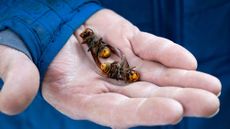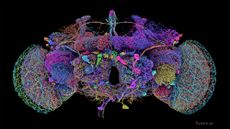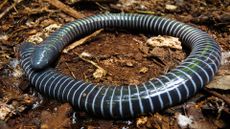This new study reveals the shocking reality of sexual harassment in science


The science community knows it has a sexual harassment problem. That doesn't mean things are getting better.
Even after years of enacting policies to tackle sexual harassment, the STEM world doesn't have much progress to show, a study from National Academies of Sciences, Engineering, and Medicine released Tuesday reveals. Sure, more women may be entering science than ever before, but that just means more women are dealing with harassment.
The National Science Foundation commissioned the report two years ago, and its 311 pages exposed some outrageous details. Women in engineering and medicine are more likely to face harassment than those in any other academic area, and almost half of women in medical fields have been harassed, Stat reports. Victims drop research projects, skip meetings, and quit jobs. And they opt not to report incidents because, just like in so many other industries, they fear retaliation and don't want to deal with drawn-out legalities.
Subscribe to The Week
Escape your echo chamber. Get the facts behind the news, plus analysis from multiple perspectives.

Sign up for The Week's Free Newsletters
From our morning news briefing to a weekly Good News Newsletter, get the best of The Week delivered directly to your inbox.
From our morning news briefing to a weekly Good News Newsletter, get the best of The Week delivered directly to your inbox.
The report demands an academic overhaul to begin solving this massive problem, per The New York Times. Universities could change how grants are doled out to ensure one adviser's bias isn't holding a student back, and lawmakers could let victims sue harassers directly so universities can't keep accusations anonymous.
Read more about the groundbreaking report at The New York Times.
Sign up for Today's Best Articles in your inbox
A free daily email with the biggest news stories of the day – and the best features from TheWeek.com
Kathryn is a graduate of Syracuse University, with degrees in magazine journalism and information technology, along with hours to earn another degree after working at SU's independent paper The Daily Orange. She's currently recovering from a horse addiction while living in New York City, and likes to share her extremely dry sense of humor on Twitter.
-
 US won its war on 'murder hornets,' officials say
US won its war on 'murder hornets,' officials saySpeed Read The announcement comes five years after the hornets were first spotted in the US
By Peter Weber, The Week US Published
-
 Dark energy data suggest Einstein was right
Dark energy data suggest Einstein was rightSpeed Read Albert Einstein's 1915 theory of general relativity has been proven correct, according to data collected by the Dark Energy Spectroscopic Instrument
By Peter Weber, The Week US Published
-
 New DNA tests of Pompeii dead upend popular stories
New DNA tests of Pompeii dead upend popular storiesSpeed Read An analysis of skeletal remains reveals that some Mount Vesuvius victims have been wrongly identified
By Peter Weber, The Week US Published
-
 NASA's Europa Clipper blasts off, seeking an ocean
NASA's Europa Clipper blasts off, seeking an oceanSpeed Read The ship is headed toward Jupiter on a yearslong journey
By Peter Weber, The Week US Published
-
 Detailed map of fly's brain holds clues to human mind
Detailed map of fly's brain holds clues to human mindSpeed Read This remarkable fruit fly brain analysis will aid in future human brain research
By Peter Weber, The Week US Published
-
 Blind people will listen to next week's total eclipse
Blind people will listen to next week's total eclipseSpeed Read While they can't see the event, they can hear it with a device that translates the sky's brightness into music
By Peter Weber, The Week US Published
-
 Melting polar ice is messing with global timekeeping
Melting polar ice is messing with global timekeepingSpeed Read Ice loss caused by climate change is slowing the Earth's rotation
By Peter Weber, The Week US Published
-
 An amphibian that produces milk?
An amphibian that produces milk?speed read Caecilians, worm-like amphibians that live underground, produce a milk-like substance for their hatchlings
By Peter Weber, The Week US Published

